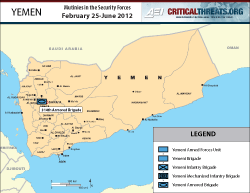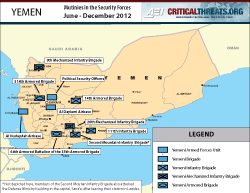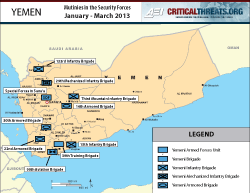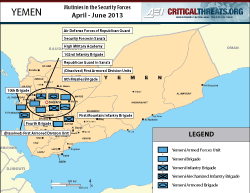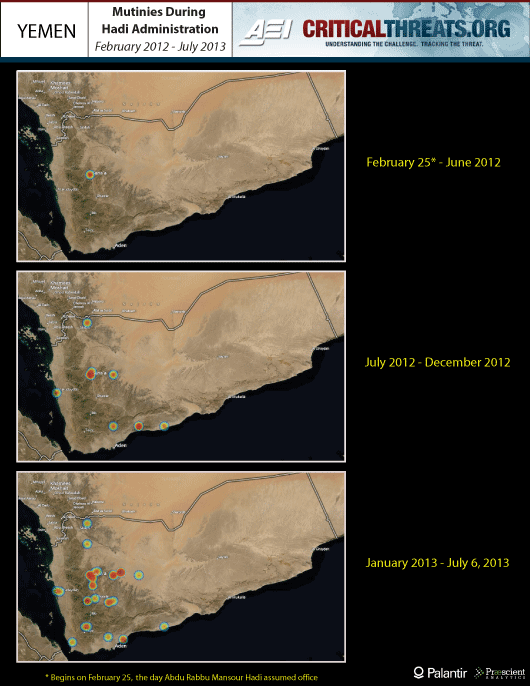{{currentView.title}}
July 10, 2013
Map: Chronology of Mutinies in the Security Forces
Soldier-level acts of disobedience have affected security units in several of Yemen’s governorates, sometimes in highly sensitive fronts like Abyan and Ma’rib where al Qaeda in the Arabian Peninsula (AQAP) has been known to operate. These rebellions can reduce the overall effectiveness of the Yemeni security forces, particularly the military, but rarely do they translate to a case of total dysfunction. A notable exception is the case of the Third Mountain Infantry Brigade, which first mutinied in Ma’rib governorate in February 2013 and was finally disbanded on May 20.[1] Instances of mutiny increased in frequency as President Abdu Rabbu Mansour Hadi moved to reform the military structure and eject or reassign political appointees from the former regime. Mutinies affect a variety of military organizations beyond conventional forces, from the High Military Institute in Sana’a, to employees at air bases in al Hudaydah and Sana’a.
Unit Locations
Note: This series of maps shows the initial cases of unit insubordination; it does not differentiate between single and repeated instances of insubordination. For example, although the Third Mountain Infantry Brigade’s rebellion extended into May, the unit’s rebellion is only displayed once for February 2013, when it first ejected its commander.
Intensity of Mutinies

